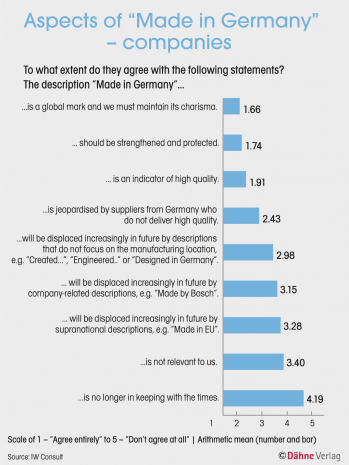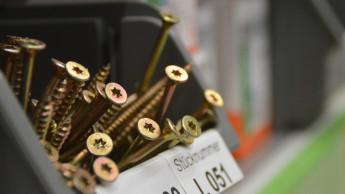Adidas, too, aims to switch increasingly to robots this year and is moving its manufacturing from Asia back to Germany. Like textile manufacturer Trigema, it wants to advertise using the "Made in Germany" seal once more. The German description of origin confers an important product advantage abroad in particular. The most important purchasing criterion for Chinese consumers, for example, is the brand of a product - and the Chinese particularly like the "Made in Germany" label, followed by the price and customer communication. It seems to be a similar story at first glance with the rather surprising category of health: operations in German hospitals and treatments in Germany's health spas are considered the best in the world and are popular especially on the Arabian Peninsula, but also with British patients, who endure a long wait for a consultation in their own country.
However, in spite of German industry's export boom in 2016 - another indication of the esteem in which German products are held globally - problems exist, because the scandals involving VW ("Diesel-Gate"), Deutsche Bank and DFB have tarnished its image in some places. Being a collective brand that can be used for a broad spectrum of products, "Made in Germany" may suffer as a result. If one or two German companies fall into disrepute, they can quickly drag everyone else down with them.
According to the platform Legal Tribune Online (LTO), the "Made in Germany" tag can justify a price increase of up to ten per cent, equating to an annual figure running into tens of billions at least. If consumers are no longer prepared to pay this premium, then it creates a problem for the entire economy. The LTO article continues: "The risk for 'Made in Germany…

 Menü
Menü















 Newsletter
Newsletter